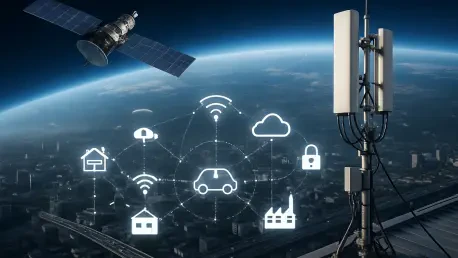
Imagine a world where even the most remote corners of the planet are seamlessly connected, where IoT devices in isolated regions communicate as effortlessly as those in urban hubs, and where no location is left offline. This vision is rapidly becoming reality through a groundbreaking collaboration

As Texas grapples with an unprecedented surge in electricity demand, driven by rapid population growth and the proliferation of energy-intensive data centers, a transformative shift toward renewable energy and advanced storage solutions is taking shape. The state, once synonymous with fossil fuel

Setting the Stage: A Capacity Crisis in the Energy Sector In the sprawling network of the PJM Interconnection, which spans 13 states and the District of Columbia, a staggering reality has emerged: capacity prices in recent auctions have soared to levels like $329.17/MW-day, a sharp contrast to

I'm thrilled to sit down with Christopher Hailstone, a seasoned expert in energy management and renewable energy with a deep understanding of electricity delivery. As our Utilities expert, Christopher offers invaluable insights into grid reliability and security. Today, we’re diving into Xcel

In an era of unprecedented transformation, the U.S. power market stands at a critical crossroads, grappling with a staggering surge in electricity demand that marks the fastest growth in decades. Imagine data centers humming with insatiable energy needs, electric vehicles charging across sprawling

What happens when the lifeblood of modern society—electricity—faces unprecedented strain from soaring demand and unpredictable climate events? Picture a major city plunged into darkness during a heatwave, not due to a lack of power, but because an aging grid couldn’t adapt fast enough to meet the